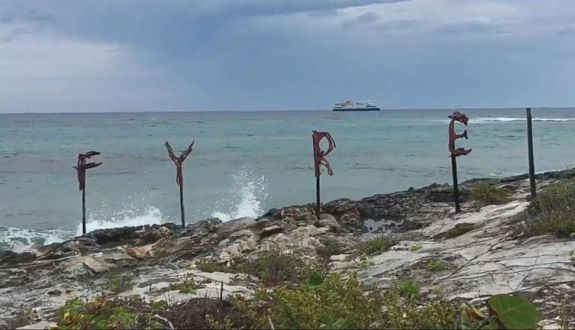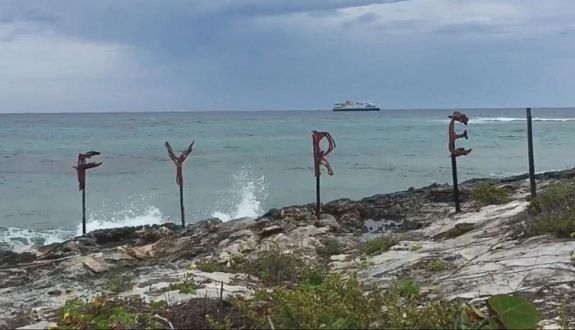The Legal Mess of the Fyre Fest
- by
- Jan 31, 2019
- Legal News
- Reviewed by: Matt Riley


I recently transitioned from a clerkship to a job at a law firm, so my free time has declined precipitously of late. The other day, I was checking Twitter before going to bed, and I saw a post from Chrissy Teigen (who I am still mad at for not retweeting my picture of the banana bread I baked using her recipe). She mentioned something about a Fyre Fest documentary. Little did I realize, the documentary (or, more aptly, documentaries — both Netflix and Hulu released their own versions) would become a viral discussion topic.
For those of you who may not be aware (somehow) of Fyre Fest, here’s what happened in a nutshell: a reckless entrepreneur (of sorts) teamed up with Ja Rule and a host of social media influencers to promote the next big music festival (like Coachella, but in the Bahamas and cooler). They made a trailer for the festival showing all sorts of cool features but failed to prepare the site or the amenities in time. People were forced to sleep in FEMA tents, given cheese sandwiches (instead of the gourmet food they were promised), and were stranded at the festival site. A picture is worth a thousand words, so here are a few salient images.
Given the seemingly limitless interest in this topic, we’ve decided to do a post covering the various legal issues involved with the debacle that was the Fyre Fest. There have been six lawsuits brought against the organizers in various states by various attendees, with some overlap in content. Here are the most salient claims.
1. Fraud
To show fraud, a claimant generally is required to show a someone intentionally misrepresentation made with intent to induce reliance, which justifiably causes reliance and results in damages. In other words, someone lied to you in order to get you to do something, and because of those lies you suffered some harm. This one is pretty simple. The attendees are arguing that the organizers misrepresented the features of the festival in order to induce them into buying a ticket, and that they were justified in relying on the promises of the organizers because there was no way of knowing that the whole event was going to end up being a sham.
2. Negligent Misrepresentation
Negligent misrepresentation is a lot like fraud, but it requires a lower showing of intentionality on the part of the person making the misrepresentation. As a result, attendees can argue that, even if the organizers did not actually know that the festival would not be ready in time, they were so reckless in representing the features of the festival that they are still liable. Basically, negligent misrepresentation is a slightly less difficult claim to prove that relies on the same general features.
3. Breach of Contract
This one is also pretty straightforward. The attendees can argue that their purchase of a ticket created a contract with the organizers entitling them to the promised festival and its accompanying amenities. The organizers arguably breached the contract by failing to perform their part of the bargain. Thus, attendees can seek damages for, at least, the cost of their tickets.
4. Consumer Protection
Various states have consumer protection laws, which essentially prohibit any unconscionable (wrongful), deceitful, or fraudulent commercial practice. The issues discussed above can also be used to support a claim under a consumer protection act.
5. FTC Regulations
At least one of the lawsuits surrounding Fyre Fest relates to the use of influencers to promote the event. If you’re unfamiliar with the concept, the gist is that brands will pay famous people (like the Jenners, the Hadids, or any number of random other individuals on social media with a significant following) to promote their services or products. The claim here is that the influencers failed to disclose they were getting compensated for promoting the festival, in violation of FTC regulations.
————
So, that’s the civil side of the lawsuits against the Fyre Fest folks (for more details on the specific allegations in those suits, you can go here). There’s also a criminal aspect, as the aforementioned entrepreneur (I’m being very generous calling him that) was also charged with wire fraud for using telecommunications/email to perpetrate his fraud.
All in all, the Fyre Fest has been a real boon to plaintiffs’ attorneys. The lawsuits almost all involve class actions (i.e., there are a few representative individuals bringing a suit on behalf of many more attendees), which creates larger potential returns for the lawyers involved. So at least some people are happy with how the Fyre Fest turned out.
Search the Blog

Free LSAT Practice Account
Sign up for a free Blueprint LSAT account and get access to a free trial of the Self-Paced Course and a free practice LSAT with a detailed score report, mind-blowing analytics, and explanatory videos.
Learn More
Popular Posts
-
logic games Game Over: LSAC Says Farewell to Logic Games
-
General LSAT Advice How to Get a 180 on the LSAT
-
Entertainment Revisiting Elle's LSAT Journey from Legally Blonde








